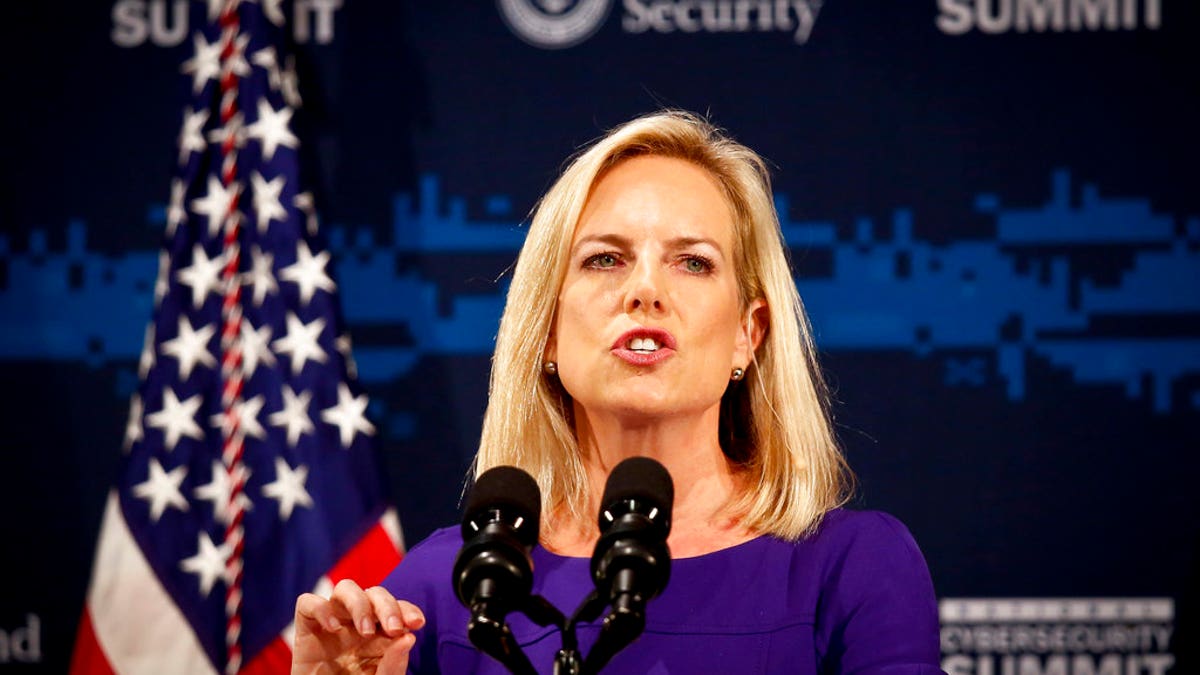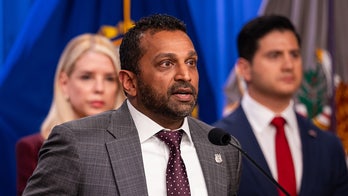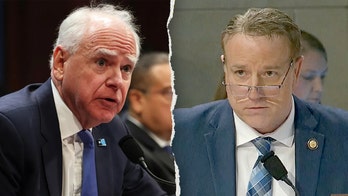
Secretary of Homeland Security Kirstjen Nielsen addresses the Department of Homeland Security (DHS) National Cybersecurity Summit, July 31, 2018. (Associated Press)
Immigrants to the United States who are overly reliant on public assistance may soon find it more difficult to remain in the country.
In a 447-page proposal posted online Saturday, the Department of Homeland Security calls for immigrants to be denied permanent residency if they’ve received or are likely to receive benefits such as food stamps, Medicaid or housing vouchers.
“Under long-standing federal law, those seeking to immigrate to the United States must show they can support themselves financially,” DHS Secretary Kirstjen Nielsen said in a statement to the Washington Post.
“Under long-standing federal law, those seeking to immigrate to the United States must show they can support themselves financially.”
The proposed changes would “promote immigrant self-sufficiency and protect finite resources by ensuring that they are not likely to become burdens on American taxpayers,” Nielsen added.
President Trump has said he wants to replace the current immigration system with a merit-based one, based on job skills.
Green card applicants are already required by federal law to prove they will not be a burden – or “public charge” – but the proposal would expand the number programs that could disqualify them.
Under the rule, denials for green cards can be issued if an immigrant received government benefits for up to 15 percent of the poverty level - $1,821 for an individual and $3,765 for a family of four, Politico reported.
DHS will allow a 60-day period for public comment on the proposal before it is published in the Federal Register. Afterward, the agency will make changes based on public feedback before issuing a final rule. The agency anticipates court challenges to any change, the Post reported.
If adopted, the changes would affect those applying for immigration visas or those with temporary residency who want to stay in the country, and could affect the more than 600,000 participants in DACA (Deferred Action for Childhood Arrivals) -- the Obama-era "Dreamers" program -- if they file for permanent residency, according to the Post.
The proposal would have little effect on undocumented immigrants or foreigners who apply for “temporary protected status” to remain in the U.S. after a natural disaster or armed conflict in their home countries.
Critics see the measure as just another attempt to restrict legal immigration and force low-income families to choose between receiving public assistance or staying in the United States.
“This would force families -- including citizen children -- to choose between getting the help they need and remaining in their communities,” said Diane Yentel, president of the National Low Income Housing Coalition. “The last thing the federal government should do is punish families that have fallen on hard times for feeding their children or keeping a roof over their heads and avoiding homelessness.”
Some immigrants have already decided to forgo benefits in fear for being deported.
The Post reported that 3.7 percent of the 41.5 million immigrants living in the U.S. received cash benefits in 2013 and 22.7 percent received other forms of assistance like Medicaid, housing subsidies or home heating assistance.
The percentage of native-born Americans who get the same forms of assistance in 2015 was nearly identical.
The changes could expand disparities in health insurance rates between children with native-born parents and those with immigrant parents.
The timing of the proposal, along with an announcement earlier this week that the administration will admit no more than 30,000 refugees in the next fiscal year, could stir up the Republican Party’s base.
“We can be choosy about who we allow into the country,” said Hans von Spakovsky, a senior fellow with the conservative Heritage Foundation. “One of the primary factors ought to be ensuring that the legal immigrants who come in are people who can financially support themselves.”
The Associated Press contributed to this story.











































